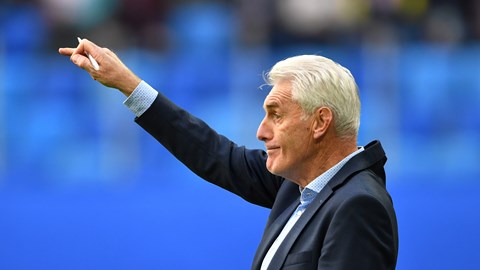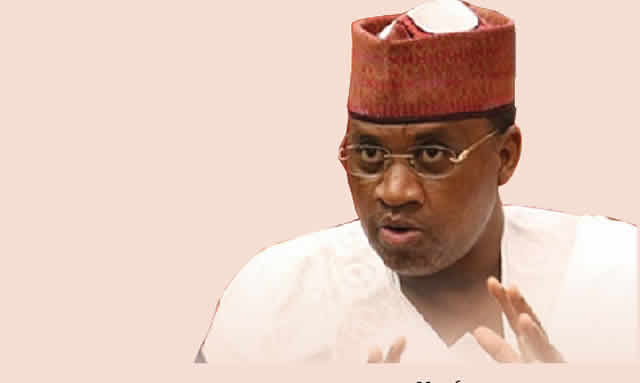In a surprising turn of events that has sent ripples through the South African football community, Bafana Bafana’s head coach, Hugo Broos, has publicly acknowledged a significant error during their 2026 FIFA World Cup qualifying campaign. The Belgian tactician admitted to fielding an ineligible player, Mamelodi Sundowns midfielder Teboho Mokoena, in a crucial 2-0 victory over Lesotho in March. This mistake, which went unnoticed by both teams at the time, could now jeopardize South Africa’s standing in the qualifiers, potentially costing them three valuable points. The incident has sparked debates about administrative oversight, the enforcement of FIFA regulations, and the broader implications for Bafana Bafana’s quest to secure a spot in the 2026 World Cup, co-hosted by the United States, Canada, and Mexico. This article delves into the details of the controversy, its potential consequences, the reactions from stakeholders, and the broader context of South Africa’s football aspirations.
The Incident: A Costly Oversight
The controversy centers on Teboho Mokoena, a key midfielder for both Mamelodi Sundowns and the South African national team. During the qualifiers, Mokoena had accumulated two yellow cards, which, according to FIFA’s disciplinary rules, warranted an automatic one-match suspension. Unaware of this, the South African technical team included Mokoena in the starting lineup for the match against Lesotho, nicknamed the Crocodiles. The game, which took place in March, ended in a 2-0 victory for Bafana Bafana, a result that bolstered their position in Group C of the African qualifiers.
However, the inclusion of Mokoena was a violation of FIFA’s regulations, as players who receive two yellow cards in separate matches are required to serve a suspension in the subsequent game. The oversight was not immediately detected, as neither South Africa nor Lesotho raised concerns during or after the match. It was only later, through a review process—possibly triggered by FIFA or a rival team—that the error came to light.
Hugo Broos, a seasoned coach with a reputation for meticulous planning, was candid in his admission of the mistake. “Honestly, we didn’t know Mokoena was suspended, and Lesotho didn’t know either,” he said in a press conference addressing the issue. His transparency, while commendable, has done little to quell the growing anxiety among South African football fans, who fear the consequences of this administrative blunder.
Potential Consequences: A Blow to Bafana Bafana’s Campaign
The implications of fielding an ineligible player are severe under FIFA’s rules. According to the governing body’s regulations, a team found guilty of such a violation may be forced to forfeit the match, with the result overturned to a 3-0 victory for the opposing team. In this case, Lesotho could be awarded the three points from the March encounter, while South Africa would lose the points they earned from their 2-0 win.
“If the decision is that we lose three points, then okay, we lose three points,” Broos stated, adopting a pragmatic tone. However, the loss of three points could have far-reaching consequences for Bafana Bafana’s qualification hopes. The 2026 FIFA World Cup qualifiers are highly competitive, with only the group winners guaranteed a spot in the tournament and the best runners-up entering a playoff. In a tightly contested group, every point is critical, and the forfeiture of three points could push South Africa down the standings, making their path to qualification significantly more challenging.
At the time of the incident, South Africa had shown promising form in the qualifiers. Broos highlighted the team’s strong performances, including a commendable result against Nigeria and a victory in Benin. “We got a good result in Nigeria and we won in Benin,” he said, emphasizing the team’s resilience. However, the potential deduction of points could undo much of this progress, placing additional pressure on the team to secure victories in their remaining matches.
Broos’ Defense: No Complaints, No Fear
In addressing the controversy, Broos was quick to point out that no formal complaint had been lodged by Lesotho or any other party at the time of the match. “There was no complaint. Why should we start doubting, being scared or afraid?” he argued. This statement reflects his belief that the error was an honest mistake rather than an attempt to gain an unfair advantage. The absence of an immediate protest from Lesotho suggests that the opposing team was also unaware of Mokoena’s ineligibility, further complicating the situation.
Broos’ remarks also underscore a broader issue in football administration: the reliance on teams and officials to monitor and enforce disciplinary rules. In this case, the failure to track Mokoena’s yellow cards was a collective oversight involving the South African Football Association (SAFA), the technical staff, and potentially even FIFA’s match officials. While Broos has taken responsibility for the error, questions remain about the systems in place to prevent such mistakes.
The coach’s defiant tone—“If it’s like that, we’ll fight on the pitch”—suggests that he is prepared to rally his team to overcome any sanctions and continue their pursuit of World Cup qualification. This resolve will be tested in the coming months, as Bafana Bafana face a demanding schedule of matches against strong opponents in their group.
The Role of Teboho Mokoena
At the heart of the controversy is Teboho Mokoena, a talented midfielder who has become a cornerstone of Bafana Bafana’s midfield. Known for his versatility, work rate, and ability to dictate play, Mokoena has been a standout performer for both club and country. His inclusion in the match against Lesotho was not surprising, given his importance to the team, but it has now placed him in an unfortunate spotlight.
There is no indication that Mokoena himself was aware of his suspension, and the responsibility for ensuring his eligibility lies with the coaching staff and SAFA’s administrative team. Nevertheless, the incident could have a psychological impact on the player, who may feel indirectly responsible for the team’s predicament. Broos, however, has not singled out Mokoena for blame, instead framing the issue as a collective oversight.
Mokoena’s performances in the qualifiers have been instrumental in South Africa’s campaign, and his absence in the Lesotho match would likely have altered the team’s dynamics. The irony is that his contribution to the 2-0 victory may now be nullified, highlighting the fine margins that define success in international football.
FIFA’s Rules and Enforcement
FIFA’s regulations on player eligibility are clear, but their enforcement can be complex. The rule requiring a one-match suspension after two yellow cards is standard across international competitions, designed to maintain discipline and fairness. However, the process for identifying and addressing violations is not always straightforward. In some cases, violations are only discovered after a formal protest from an opposing team or through FIFA’s own review processes.
In this instance, the lack of an immediate complaint from Lesotho raises questions about how the issue was brought to FIFA’s attention. It is possible that a rival team in Group C, aware of the competitive stakes, flagged the violation to gain an advantage. Alternatively, FIFA’s disciplinary committee may have identified the error during a routine review of match reports.
The precedent for such cases is well-established. In past qualifiers, teams have faced sanctions for fielding ineligible players, often resulting in forfeited matches. For example, in the 2018 World Cup qualifiers, Bolivia was penalized for fielding an ineligible player, with two matches overturned in favor of their opponents. The potential for a similar outcome in South Africa’s case has heightened concerns among fans and analysts.
SAFA’s Response and Administrative Challenges
The South African Football Association (SAFA) has yet to issue a formal statement on the matter, but the incident has exposed vulnerabilities in the organization’s administrative processes. Tracking player suspensions is a fundamental responsibility of national federations, and the failure to do so in this case reflects poorly on SAFA’s oversight.
This is not the first time SAFA has faced criticism for administrative lapses. In recent years, the organization has been embroiled in controversies over governance, financial management, and logistical issues. The Mokoena incident adds to the perception of disorganization within SAFA, raising questions about the support provided to Broos and his technical team.
To prevent similar errors in the future, SAFA may need to implement stricter protocols for monitoring player eligibility, including real-time tracking of yellow cards and suspensions. Such measures could involve dedicated administrative staff or software systems designed to flag potential issues before matches.
The Broader Context: South Africa’s World Cup Ambitions
The controversy comes at a pivotal moment for South African football. Bafana Bafana have not qualified for the FIFA World Cup since hosting the tournament in 2010, and the 2026 qualifiers represent a fresh opportunity to return to the global stage. Under Broos’ leadership, the team has shown signs of progress, blending experienced players like Mokoena with emerging talents.
The 2026 World Cup, with its expanded format of 48 teams, offers African nations a greater chance of qualification, with nine direct slots and one playoff spot available. However, the competition remains fierce, with traditional powerhouses like Nigeria, Senegal, and Morocco vying for places alongside rising teams like Benin and Lesotho.
South Africa’s group, which includes Nigeria and Benin, is particularly challenging. The loss of three points could force Bafana Bafana to rely on away victories or favorable results elsewhere, a risky proposition given the unpredictability of African qualifiers. Broos’ assertion that the team will “fight on the pitch” reflects the determination required to navigate these challenges, but it also underscores the precariousness of their situation.
Reactions from Fans and Analysts
The news of the potential points deduction has sparked a range of reactions among South African football fans. On social media platforms like X, supporters have expressed frustration with SAFA’s administrative failures, with some calling for greater accountability. Others have rallied behind Broos, praising his honesty and urging the team to focus on upcoming matches.
Football analysts have also weighed in, with many highlighting the need for structural reforms within SAFA. “This is a wake-up call for South African football,” said one prominent commentator. “We can’t afford these kinds of mistakes if we’re serious about competing at the World Cup.” Others have pointed out that the incident reflects broader challenges in African football, where administrative issues often undermine on-field progress.
Lesotho’s football community, meanwhile, has remained relatively quiet on the matter. The absence of a formal complaint from the Lesotho Football Association suggests that they may not pursue the issue aggressively, possibly due to their own oversight in failing to notice Mokoena’s ineligibility. However, if FIFA awards Lesotho the three points, it could provide a significant boost to their own qualification hopes, given their underdog status in the group.
Looking Ahead: Challenges and Opportunities
As Bafana Bafana await FIFA’s decision, the focus will shift to their upcoming matches and the need to maintain momentum. Broos’ ability to galvanize the team will be crucial, particularly if the points deduction is enforced. The coach’s experience, which includes leading Cameroon to the 2017 Africa Cup of Nations title, will be tested as he navigates this setback.
For SAFA, the incident presents an opportunity to address longstanding administrative issues. Implementing robust systems for tracking player eligibility and improving communication between the technical staff and administrative team could prevent future errors. Additionally, greater transparency and accountability within the organization could help restore confidence among fans and stakeholders.
On the pitch, Bafana Bafana will need to channel their energies into securing positive results in their remaining qualifiers. The team’s performances against Nigeria and Benin demonstrate their potential, but consistency will be key. Players like Mokoena, who remain integral to the squad, will need to rise above the controversy and deliver when it matters most.
Conclusion
The controversy surrounding Teboho Mokoena’s ineligible participation in the World Cup qualifier against Lesotho is a stark reminder of the fine margins that define international football. Hugo Broos’ admission of the mistake, while honest, has exposed vulnerabilities in South Africa’s football administration and raised the stakes for their qualification campaign. The potential loss of three points could disrupt Bafana Bafana’s momentum, but Broos’ resolve to “fight on the pitch” reflects the team’s determination to overcome this setback.
As FIFA deliberates on the matter, the focus will be on how South Africa responds, both on and off the field. For a nation with a proud footballing history and aspirations of returning to the World Cup stage, this incident serves as both a challenge and an opportunity. By addressing administrative shortcomings and rallying behind their talented squad, Bafana Bafana can still achieve their goal of qualifying for the 2026 World Cup. However, the road ahead will require resilience, unity, and a commitment to excellence at every level of the game.






